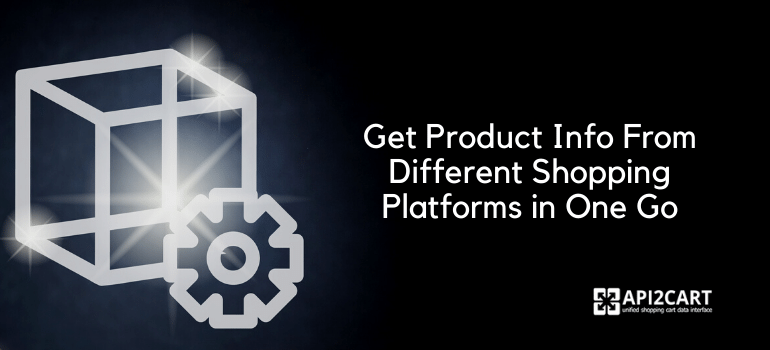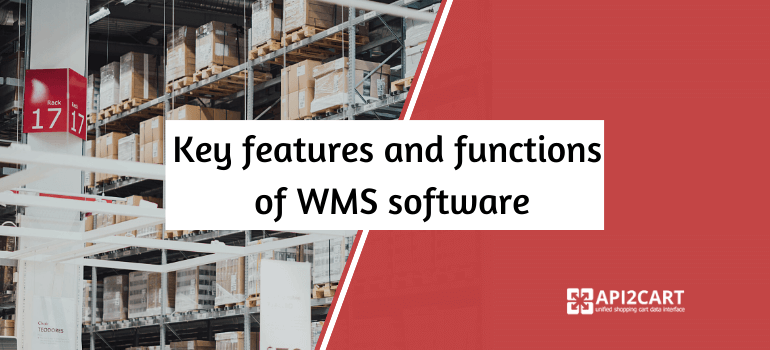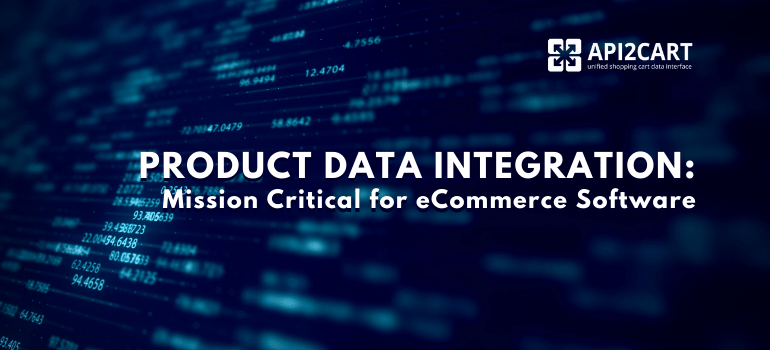
Today, vendors of eCommerce applications such as product Information management, warehouse management, localization software providers must have some type of integration with various eCommerce platforms to remain competitive in the eCommerce industry. Connectivity with many eCommerce sites helps them to deal with data storage, such as orders, products, categories, shipments, customers, etc.
Product information is one of the key store information that enables certain software types to support their key functions. That is critical because online retailers use numerous shopping platforms to establish their online stores. They usually tend to use the most common shopping platforms, such as Magento, Shopify, WooCommerce, PrestaShop, etc. However, more and more online retailers now also use less popular sites because of the growth in online purchases, enabling them to enter the eCommerce market instantly. That means that if you have seamlessly built a connection with a large number of eCommerce platforms, you will obtain more potential customers for your SaaS software solution.
In this post, we will explore how you can integrate with and get needed product info for your B2B SaaS system from multiple eCommerce platforms via only one API.
Why B2B SaaS Companies Need Product Info
A lot of B2B SaaS software can not accomplish their features without importing products:
PIM System
Product information management software, for example, offers a centralized place for the management and processing of product data, the development of product catalogs, and the delivery of all to sales and eCommerce networks. PIM applications are especially useful for dropshipping and multichannel retailing, where product details must be updated constantly across multiple shopping channels. Managing retail product information means accessing every single piece of online store content: product descriptions, images, prices, etc.
You as a PIM provider need to ensure that you can correctly retrieve, process and incorporate this information while creating PIM applications. That includes building dozens of connections, as well as those with shopping platforms on which merchants operate their online shops.
Localization software
If you are developing localization software, you have to ensure that information such as product names, categories, images, currencies, time, date, could be accurately obtained, processed, and inserted. To simplify most translating activities, localization software relies on integration with shopping carts. Integration with shopping platforms enables localization software to seamlessly collect and post translated content.
Warehouse management software
Warehouse management software is an important component for every rising retail company. It arranges a broad range of functions. In particular, it includes tasks such as order fulfillment, shipment monitoring, stock level control, order status updating, and more. Warehouse management software relies heavily on shopping platforms integration, as key functions include the ability to obtain and process orders, customers and product data from online shops.
Marketplace website
Marketplaces are a fantastic additional channel for online retailers to present their goods to millions of customers. However, one of the main challenges for marketplace website solutions is the collection of data from online stores. Marketplace website providers should be able to operate easily and efficiently with online stores because merchants need their orders, products, and other data unified in one system from different channels.
Therefore, to build continuous data sharing with the online store website, you as a marketplace provider need to integrate with shopping platforms.
Multichannel software
Multichannel software enables different business processes to be organized and managed, from managing inventory and order distribution to shipment management and product listings synchronized from one centralized location. For such systems, full integration with eCommerce marketplaces and shopping carts is of prime importance. That helps them to collect product details, orders, shipments, stock levels, and sync it across all platforms.
eCommerce Integration Challenges
As you can see above, the integration of eCommerce data is important for SaaS software providers to gain more market dominance in the eCommerce sector. More suggests better in terms of shopping cart interconnection, since the number of supported shopping platforms determines the number of new clients. Integration is, however, a dynamic and costly operation, so it often will become the primary limitation for the development of the eCommerce application.
The integration of APIs with one framework is challenging, but it becomes even more stressful when we talk about connectivity with several platforms. That is why many B2B eCommerce software vendors chose to handle just a few shopping platforms and to lose potential customers and sales. For eCommerce software vendors, standard integration drawbacks are:
- Each integration brings specific complications as each shopping platform has specific logic and design, so it takes time and experience to understand.
- Integration has to be carried out extensively, or there may be issues such as data loss or duplication.
- A trained expert is needed to create a satisfactory integration framework. Not only is it hard to find a specialist, but when you finally find him, you will pay additional money for each integration.
- Integration includes further support of integration, so you will need a special IT team to help the integration process and guarantee that everything is working correctly.
Establishing data integration between various systems requires lots of technical work, as we can see above, and so does implementation maintenance. Entrusting integration with shopping platforms to a ready-made integration solution is much more practical.
How API2Cart Can Help in Getting Product Info From Different Shopping Platforms
Investing in a well-coined integration solution is the easiest way to integrate efficiently. API2Cart provides a unified API that makes it easier to integrate various eCommerce platforms and shopping carts with your SaaS software. It has developed integration with over 40 shopping platforms, like Shopify, Magento, OpenCart, WooCommerce, PrestaShop, BigCommerce, and many others.
In particular, it allows you to get product info, orders, customers, shipments, categories, and other store data you need to operate your core functionality. For example, product.list method enables to retrieve product details. To retrieve attributes and values you can execute product.attribute.list method.
Create your free API2Cart account and evaluate all of the supported API2Cart API methods to see if they function for your business requirements. You can also browse through our helpful developer guide to help you quickly get more information about how to get acquainted with API2Cart. If you'd like to get some additional info about API2Cart, please feel free to contact our management team. Remember that you can try our product free of charge for 14 days.



